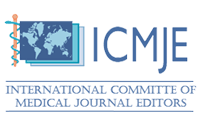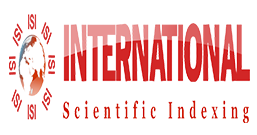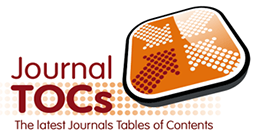Better Aquaculture for a Better World
Lissandra Souto Cavalli*
Affiliation
Agricultural and Livestock Research Foundation – Fepagro, Brazil
Corresponding Author
Lissandra Souto Cavalli, Agricultural and Livestock Research Foundation-Fepagro, Brazil. Tel: (55) 5134813711; E-mail: liscavalli@gmail.com
Citation
Cavalli, L.S. Better Aquaculture for a Better World. (2016) J Marine Biol Aquacult 2(1): 1-2.
Copy rights
© 2016 Cavalli, L.S.. This is an Open access article distributed under the terms of Creative Commons Attribution 4.0 International License
Keywords
Aquaculture;World;Environmental;Sustainable
Introduction
The permanent and rapid evolution of aquaculture is called the blue revolution[1]. The blue revolution requires best environmental and social practices regarding sustainable business, work safety[2] and gender equality. Aquaculture is an important source of local food and livelihood[3] for people worldwide. Consequently, it is necessary to improve animal health conditions, social inclusion, sustainability and eco-friendly activity in aquaculture industry.
The rapid development of aquaculture has led to the intensification of farming by increasing the stocking densities. Therefore, any changes in water quality or poor management may cause the emergence of disease and increased animal mortality. Good management practices and new methodologies for rapid diagnosis are effective measures for establishing animal health in aquaculture.
Undoubtedly, a new and innovative aquaculture needs to adopt sustainable and eco-friendly practices. Responsible aquaculture requires minimizing negative environmental impact and conserving soil and water[2]. The environmentally friendly is associated touse of probiotics[4] which can improve water quality and animal health. Additionally, organic production in aquaculture has recently gained importance in major organic food markets[5]. Organic aquaculture is an approach that addresses environmental impact, safety issues in aquaculture products[6], eco-certification, feed composition, sustainable alternatives, general nutritional principles and product quality[5].
Furthermore, the social impacts of the aquaculture sector have been neglected[1]. Small-scale aquaculture, work safety and gender equality must be strongly encouraged. Small-scale and artisanal aquaculture includes ownership by a family or community[7] which can contribute to poverty alleviation, food security and rural livelihoods[8]. Meanwhile, safety and health issues for aquaculture workers remain unaddressed[9]. Reducing farm hazards and establishing safety policies in the fishing sector could eliminate occupational health problems[10,11]. From a gender perspective, men have long dominated aquaculture as well as the academic world[12] in marine sciences. Women’s work is frequently unrecognized and unpaid[13]. All scientists and aquaculture professional shave a responsibility to ensure that all projects and policies promote gender equality[14] and women’s empowerment.
Aquaculture continues to provide many benefits, including a valuable food supply and economic support for many countries[15]. Establishing a smart aquaculture, which addresses health and social issues and is environmental friendly, should be a priority. Only under these conditions, aquaculture could contribute for a better world indeed.
References
- 1. Krause, G., Brugere, C., Diedrich, A., et al. A Revolution without People? Closing the People-Policy Gap in Aquaculture Development (2015) Aquaculture 447(1): 44-55.
- 2. Lee, K.K. Sustainable Aquaculture. (2015) J Marine Biol Aquacult 1(2): 1-2.
- 3. Smith, M.D., Roheim, C.A., Crowder, L.B., et al. Sustainability and Global Seafood. (2010) Science 327(5967): 784-786.
- 4. Sihag, R.C., Sharma, P. Probiotics: The new ecofriendly alternative measures of disease control for sustainable aquaculture. (2012) J Fish Aquat Sci 7(2): 72-103.
- 5. Mente, E., Karalazos, V., Karapanagiotidis, I.T. et al. Nutrition in organic aquaculture: an inquiry and a discourse. (2011) Aquacult Nut 17(4): e798–e817.
- 6. Xie, B., Qin, J., Yang, H., et al. Organic aquaculture in China: A review from a global perspective. (2013) Aquaculture 414-415: 243-253.
- 7. Edwards, P. Enhancing the contribution of small scale aquaculture to food security, poverty alleviation and socio-economic development. (2013) FAO Fisheries and Aquaculture Proceedings No. 31. Rome, FAO pp: 255.
- 8. Townsley, P. 2013. Enhancing the contribution of small scale aquaculture to food security, poverty alleviation and socio-economic development. (2013) FAO Fisheries and Aquaculture Proceedings No.31. Rome, FAO pp: 255.
- 9. Myers, M.L. Review of Occupational Hazards associated with aquaculture. (2010) J Agromedicine 15(4): 412-426.
- 10. Myers, M.L., Cole, H.P. Simple Solutions for Reduced Fish Farm Hazards. (2009) J Agromedicine 14(2): 150-156.
- 11. Piniella, F., Novalbos, J.P., Nogueroles, P.J. Artisanal fishing in Andalusia (II): Safety and working conditions policy. (2008) Mar Policy 32(4): 551-558.
- 12. Arensbergen, P., Weijden, I., Besselaar, P. Gender differences in scientific productivity: a persisting phenomenon (2012) Scientometrics 93(3): 857-868.
- 13. Williams, M.J., Agbayani, R., Bhujel, R., et al. Sustaining aquaculture by developing human capacity and enhancing opportunities for women. (2010) Farming the Waters for People and Food. Proceedings of the Global Conference on Aquaculture 785–874.
- 14. Williams, M.J. Why Look at Fisheries through a Gender Lens (2008) Development 51: 180–185.
- 15. Cole, D.W., Cole, R., Gaydos, S.J., et al. Aquaculture: Environmental, toxicological and health issues. (2009) Int J Hyg Environ Health 212(4): 369-377.












